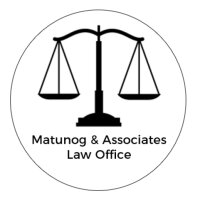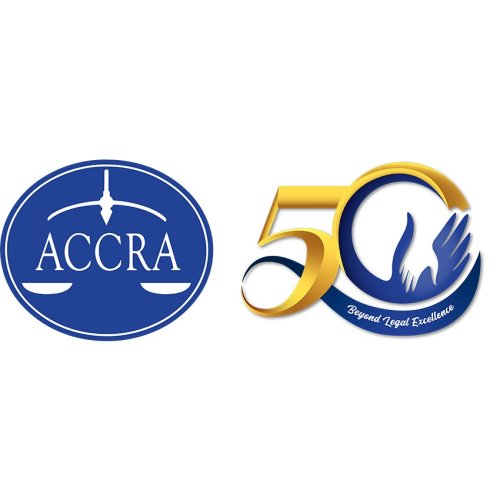Best Conveyancing Lawyers in Davao City
Share your needs with us, get contacted by law firms.
Free. Takes 2 min.
Free Guide to Hiring a Real Estate Lawyer
List of the best lawyers in Davao City, Philippines
About Conveyancing Law in Davao City, Philippines
Conveyancing refers to the legal process of transferring ownership of real property from one party to another. In Davao City, as in the rest of the Philippines, this process involves several steps including the preparation, execution, and registration of legal documents, payment of taxes and fees, and ensuring that the transaction complies with all relevant laws and regulations. Whether you are buying, selling, or inheriting property, conveyancing aims to protect your interests and ensure a smooth and legally sound transaction.
Why You May Need a Lawyer
A lawyer specializing in conveyancing can help you navigate the complexities of property transactions in Davao City. Common situations where you may need legal assistance include:
- Buying or selling residential or commercial property
- Transferring land ownership due to inheritance or donation
- Resolving disputes related to property boundaries or titles
- Drafting and reviewing contracts such as Deeds of Sale or Conditional Sale Agreements
- Assisting with due diligence and verifying the legitimacy of property titles
- Handling property consolidation, subdivision, or partition
- Navigating government requirements and securing permits
- Addressing issues with property taxes and capital gains
Legal help is valuable to avoid costly mistakes, protect your rights, and ensure that your property transaction is enforceable and recognized by the relevant authorities.
Local Laws Overview
Conveyancing law in Davao City is mainly governed by national legislation such as the Civil Code of the Philippines, laws on property registration, and rules set by government agencies like the Register of Deeds and the Bureau of Internal Revenue (BIR). Key local considerations include:
- Proper verification of property title through the Registry of Deeds in Davao City
- Compliance with local tax ordinances and payment of real property taxes
- Adherence to zoning regulations and development rules set by the Davao City local government
- Filing of documentary stamp taxes, capital gains tax, and transfer tax at city and national offices
- Observing special considerations for properties under agrarian reform or ancestral domains
It is important to work with a local lawyer familiar with these laws and procedures to prevent potential complications or delays.
Frequently Asked Questions
What documents are needed to buy property in Davao City?
Commonly required documents include the Deed of Sale, Certificate of Title (TCT or CCT), Tax Declaration, clearance from homeowners association if applicable, identification documents, and proof of payment of taxes and fees.
How can I verify if a property title is genuine and free from liens?
You can request a certified true copy of the title from the Registry of Deeds in Davao City and check for annotations or encumbrances. It is advisable to have a lawyer assist with title verification and due diligence.
What taxes and fees do I need to pay when transferring property?
The main taxes and fees include Capital Gains Tax (6 percent of selling price or zonal value, whichever is higher), Documentary Stamp Tax (1.5 percent), Transfer Tax (up to 0.5 percent), and registration fees. Local government may also impose additional charges.
Can foreigners own land or property in Davao City?
Foreigners are generally prohibited from owning land in the Philippines, but they may own condominium units subject to certain restrictions. Foreign participation in land acquisition is limited by the 1987 Philippine Constitution and related laws.
How long does the conveyancing process take?
The timeline depends on the complexity of the transaction, completeness of documents, and efficiency of local government offices. On average, it may take several weeks to a few months to complete all steps, including title transfer.
What happens if there is a dispute with the seller or buyer during the transaction?
Should disputes arise, it is best to seek legal advice immediately. Resolution may be achieved through negotiation, mediation, or, if necessary, filing a case in court. A lawyer can help protect your rights and facilitate dispute resolution.
Is it necessary to notarize the Deed of Sale?
Yes, the Deed of Sale must be notarized to make it a public document. Registration at the Registry of Deeds cannot proceed without notarization.
Are there special requirements for inherited property?
Yes, transferring inherited property requires an extrajudicial settlement or a court order, submission of the decedent’s death certificate, proof of payment of estate taxes, and other documents to support the transfer of title to heirs.
What is due diligence in real estate transactions?
Due diligence is the process of thoroughly verifying the legal and physical status of the property, including ownership, encumbrances, tax payments, and compliance with zoning and land use regulations.
Can I process the conveyancing transaction on my own?
While it is possible to handle the process yourself, engaging a lawyer or professional is strongly recommended. Conveyancing in Davao City involves multiple offices, legal forms, and risks that require experience to manage effectively.
Additional Resources
For those seeking more information or assistance, the following organizations and government agencies can be helpful:
- Registry of Deeds Davao City - Responsible for registering property documents and processing title transfers
- Bureau of Internal Revenue (BIR) Davao City - Handles payment and documentation of taxes related to property transfers
- Department of Environment and Natural Resources (DENR) - Oversees land classification and management
- Davao City Assessor’s Office - Issues Tax Declarations and property assessment
- Integrated Bar of the Philippines Davao City Chapter - Can help you find qualified conveyancing lawyers
- Local government units (LGUs) such as the Davao City Hall offer information and assistance for local requirements
Next Steps
If you need legal assistance in conveyancing in Davao City, here are suggested next steps:
- Gather all relevant documents such as property titles, tax declarations, and identification papers
- Consult with a lawyer who specializes in real estate law and conveyancing to evaluate your needs and explain the process
- Request a comprehensive due diligence on the property
- Work closely with your lawyer to draft, review, and notarize all legal documents
- Coordinate with the necessary government offices for payment of taxes, securing certificates, and registering title transfers
- Maintain copies of all receipts and documents for your records
Taking prompt action and seeking professional guidance will help ensure your property transaction in Davao City is secure, legally compliant, and hassle free.
Lawzana helps you find the best lawyers and law firms in Davao City through a curated and pre-screened list of qualified legal professionals. Our platform offers rankings and detailed profiles of attorneys and law firms, allowing you to compare based on practice areas, including Conveyancing, experience, and client feedback.
Each profile includes a description of the firm's areas of practice, client reviews, team members and partners, year of establishment, spoken languages, office locations, contact information, social media presence, and any published articles or resources. Most firms on our platform speak English and are experienced in both local and international legal matters.
Get a quote from top-rated law firms in Davao City, Philippines — quickly, securely, and without unnecessary hassle.
Disclaimer:
The information provided on this page is for general informational purposes only and does not constitute legal advice. While we strive to ensure the accuracy and relevance of the content, legal information may change over time, and interpretations of the law can vary. You should always consult with a qualified legal professional for advice specific to your situation.
We disclaim all liability for actions taken or not taken based on the content of this page. If you believe any information is incorrect or outdated, please contact us, and we will review and update it where appropriate.











